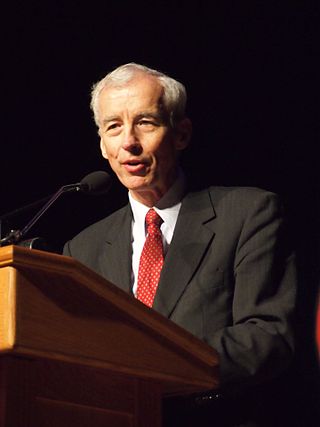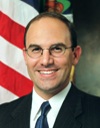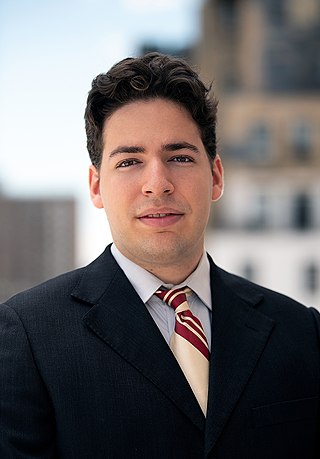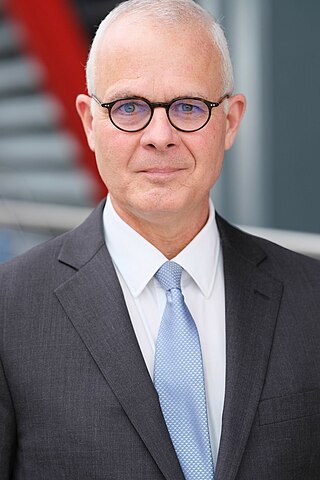Related Research Articles

Hezbollah is a Lebanese Shia Islamist political party and militant group, led since 1992 by its Secretary-General Hassan Nasrallah. Hezbollah's paramilitary wing is the Jihad Council, and its political wing is the Loyalty to the Resistance Bloc party in the Lebanese Parliament. Its armed strength is assessed to be equivalent to that of a medium-sized army.

Terrorism, in its broadest sense, is the use of violence against non-combatants to achieve political or ideological aims. The term is used in this regard primarily to refer to intentional violence during peacetime or in the context of war against non-combatants. There are various different definitions of terrorism, with no universal agreement about it. Different definitions of terrorism emphasize its randomness, its aim to instill fear, and its broader impact beyond its immediate victims.
Narcoterrorism, in its original context, is understood to refer to the attempts of narcotics traffickers to influence the policies of a government or a society through violence and intimidation, and to hinder the enforcement of anti-drug laws by the systematic threat or use of such violence. As with most definitions of terrorism, it typically only refers to non-state actors.
ProfessorRohan Gunaratna is a threat specialist of the global security environment. Professor Gunaratna has over 30 years of academic, policy, and operational experience in national and international security. He is Professor of Security Studies at the S. Rajaratnam School of International Studies, Nanyang Technology University, Singapore.
Mia M. Bloom is a Canadian academic, author, and Professor of Communication at Georgia State University. She was formerly an associate Professor of International Studies at the Pennsylvania State University in University Park and a fellow at the International Center for the Study of Terrorism at Penn State.

Paul R. Pillar is an academic and 28-year veteran of the Central Intelligence Agency (CIA), serving from 1977 to 2005. He is now a non-resident senior fellow at Georgetown University's Center for Security Studies, as well as a nonresident senior fellow in the Brookings Institution's Center for 21st Century Security and Intelligence. He was a visiting professor at Georgetown University from 2005 to 2012. He is a contributor to The National Interest.
Terrorism financing is the provision of funds or providing financial support to individual terrorists or non-state actors.
Hezbollah has a Foreign Relations Unit and maintains relations with a number of foreign countries and entities. These are particularly Shia states, but also Sunni groups like those affiliated with the Palestinian cause; and the group is also suggested to have operations outside the Middle East in places such as Latin America and North Korea.
The funding of Hezbollah comes from Lebanese business groups, private persons, businessmen, the Lebanese diaspora involved in African diamond exploration, other Islamic groups and countries, and the taxes paid by the Shia Lebanese. Hezbollah says that the main source of its income comes from its own investment portfolios and donations by Muslims.

Juan Carlos Zarate is an American attorney and security advisor who served as the deputy national security advisor for combating terrorism during the George W. Bush administration. He is the chairman and co-founder of the Financial Integrity Network, a Washington, D.C.-based consulting firm, and senior adviser at the Center for Strategic and International Studies.

Bruce O. Riedel is an American expert on U.S. security, South Asia, and counter-terrorism. He is currently a senior fellow in the Saban Center for Middle East Policy at the Brookings Institution, and a professor at Johns Hopkins School of Advanced International Studies. He also serves as a senior adviser at Albright Stonebridge Group.

Bruce R. Hoffman is an American political analyst. He specializes in the study of terrorism, counter-terrorism, insurgency, and counter-insurgency. Hoffman serves as the Shelby Cullom and Kathryn W. Davis Senior Fellow for Counterterrorism and Homeland Security on the Council on Foreign Relations, and is a professor at the School of Foreign Service of Georgetown University. In addition, he is the Professor Emeritus and Honorary Professor of Terrorism Studies at the University of St Andrews, and is the George H. Gilmore Senior Fellow at the U.S. Military Academy's Combating Terrorism Center.

Jessica Eve Stern is an American scholar and academic on terrorism. Stern serves as a research professor at the Pardee School of Global Studies at Boston University. Earlier she had been a lecturer at Harvard University. She serves on the Hoover Institution Task Force on National Security and Law. In 2001, she was featured in Time magazine's series on Innovators. In 2009, she was awarded a Guggenheim Fellowship for her work on trauma and violence. Her book ISIS: The State of Terror (2015), was co-authored with J.M. Berger.
The Axis of Resistance is an informal Iranian-led political and military coalition in West Asia and North Africa.

The Foundation for Defense of Democracies (FDD) is non-profit neoconservative think tank and a registered lobbying organization based in Washington, D.C., United States.
The State of Israel has been accused of engaging in state-sponsored terrorism, as well as committing acts of state terrorism on a daily basis in the Palestinian territories. Countries that have condemned Israel's role as a perpetrator of state-sponsored terrorism or state terrorism include Bolivia, Iran, Lebanon, Saudi Arabia, Syria, Turkey, and Yemen.

Dr. Robert G. Rabil is Professor of Political Science at Florida Atlantic University. He holds a master's degree in Government from Harvard University, a PhD in Near Eastern and Judaic Studies from Brandeis University, and an honorary PhD in humanities from the Massachusetts College of Liberal Arts. His area of studies and expertise include Political Islam, Salafism, Transnational and Revivalist Movements, Terrorism, US-Arab Relations, Arab-Israeli Conflict, US-Muslim Relations, and Contemporary Middle East Politics.
Dov Waxman is an author, academic and commentator. He is the Rosalinde and Arthur Gilbert Foundation Professor of Israel Studies at the University of California, Los Angeles (UCLA), and the director of the UCLA Younes and Soraya Nazarian Center for Israel Studies. Waxman is an internationally recognized expert on the Israeli–Palestinian conflict, Jewish–Arab relations in Israel, Israeli politics and foreign policy, Israel–United States relations, American Jewry’s relationship with Israel, Jewish politics, and contemporary Antisemitism.

Ido Eliyahu Levy is an American counter-terrorism expert and military analyst. Levy is an Associate Fellow at the Washington Institute for Near East Policy, where he authored the book "Soldiers of End-Times", a comprehensive analysis of the Islamic State's conventional warfare capabilities, published in December 2021.

Christopher P. Costa is a retired US Army intelligence officer with 34 years of service, culminating in his role as Special Assistant to the President and Senior Director for Counterterrorism at the National Security Council, White House. He is now the executive director of the International Spy Museum.
References
- 1 2 "Matthew Levitt". Experts. Washington Institute. Retrieved 2024-05-29.
- ↑ Peled, Miko (2018) Injustice. The Story of the Holy Land Foundation Five. Just World Books. ISBN 978-1-68257-085-2. pp.117-121
- ↑ Matthew Levitt (2013). Hezbollah: The Global Footprint of Lebanon's Party of God. Hurst Publishers. ISBN 978-1-84904-333-5. Reviews:
- Ilan Berman, Middle East Quarterly, ProQuest 1641986833
- Daniel Byman, Studies in Conflict & Terrorism, doi : 10.1080/1057610X.2013.823765
- Michael Clark, Cambridge Review of International Affairs, doi : 10.1080/09557571.2015.1029270
- Thomas F. Lynch III, Prism, JSTOR 26470386
- Richard Phelps, Terrorism and Political Violence, doi : 10.1080/09546553.2014.881673
- Mark Roberts, Journal of Strategic Security, JSTOR 26466754
- Joshua Sinai, Perspectives on Terrorism, JSTOR 26297049
- Michael J. Totten, The Wall Street Journal,
- John Waterbury, Foreign Affairs, JSTOR 23526991
- Ido Zelkovitz, Middle Eastern Studies, JSTOR 24585708
- ↑ Matthew Levitt (1 October 2008). Hamas: Politics, Charity, and Terrorism in the Service of Jihad. Yale University Press. ISBN 978-0-300-12901-4. Reviews:
- Khaled Hroub, Journal of Palestine Studies, doi : 10.1525/jps.2006.35.4.73
- Laleh Khalili, International Affairs, JSTOR 4541789
- Sara Roy, Middle East Policy, ProQuest 203676297
- Lawrence Rubin, Terrorism and Political Violence, doi : 10.1080/09546550601141555
- Dorothée Schmid, Politique étrangère, JSTOR 42716606
- Anders Strindberg, H-Net,
- SaraJane Tompkins, Domes: Digest of Middle East Studies, doi : 10.1111/j.1949-3606.2008.tb00165.x
- Publishers Weekly,
- ↑ Matthew Levitt (2002). Targeting Terror: U.S. Policy Toward Middle Eastern State Sponsors and Terrorist Organizations, Post-September 11 . Washington Institute for Near East Policy. ISBN 978-0-944029-81-7. Review:
- ↑ Matthew Levitt (28 August 2008). Negotiating Under Fire: Preserving Peace Talks in the Face of Terror Attacks. Rowman & Littlefield Publishers. ISBN 978-0-7425-6566-1. Review: